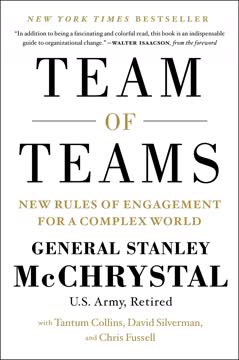重点摘要
1. 财务智慧是一项可学习的技能,对商业成功至关重要
我们所说的财务智慧,并不是你天生就有或没有的能力。
对企业家至关重要。 财务智慧包括三项关键技能:理解财务报表、认识财务的艺术(估计和假设)、分析财务数据以做出明智的决策。这些技能对于企业家有效管理业务、与利益相关者沟通以及做出战略选择至关重要。
影响业务的各个方面。 财务智慧能够在各种业务功能中做出更好的决策:
- 销售和市场营销:了解每个产品或客户的盈利能力
- 运营:通过财务指标评估效率和生产力
- 人力资源:将薪酬与财务绩效挂钩
- 战略:评估不同增长战略的财务影响
通过发展财务智慧,企业家可以获得竞争优势,提高公司绩效,并增加长期成功的机会。
2. 理解财务的艺术揭示了数字背后的估计
会计和财务并不是现实;它们是现实的反映,而这种反映的准确性取决于簿记员、会计师和财务专业人员做出合理假设和计算合理估计的能力。
数字不是绝对的。 财务报表涉及许多估计和假设,例如:
- 收入确认时间
- 折旧方法和资产寿命估计
- 库存估值技术
- 坏账准备
对决策的影响。 认识到财务的艺术可以让企业家:
- 对财务报告提出更好的问题
- 理解数字中的潜在偏见
- 基于对财务数据的细致解读做出更明智的决策
- 识别可能发生财务操纵的领域
通过欣赏财务的艺术方面,企业主可以发展出更为批判性和洞察力的财务分析和管理方法。
3. 利润是估计,而现金是业务健康的现实检验
现金是对企业绩效的现实检验,现金流量表揭示了现实。
利润与现金流。 虽然利润很重要,但它基于会计原则,可能无法反映企业的实际现金状况。关键差异包括:
- 收入确认与现金收款
- 费用应计与现金支付
- 非现金费用如折旧
现金流管理。 企业家必须关注现金流以确保业务的生存和增长:
- 监控经营现金流以评估核心业务健康状况
- 理解现金转换周期
- 有效管理营运资金
- 对投资和融资做出明智决策
通过将现金流与盈利能力并重,企业主可以避免在账面上盈利但实际上现金耗尽的陷阱。
4. 资产负债表提供了公司财务状况的全面快照
记住,我们在这一部分的开头说过,精明的投资者通常首先仔细研究公司的资产负债表。
关键组成部分。 资产负债表由三大要素组成:
- 资产:公司拥有的东西(如现金、库存、设备)
- 负债:公司欠的东西(如贷款、应付账款)
- 股东权益:属于股东的剩余价值
分析能力。 资产负债表提供了以下见解:
- 流动性:满足短期义务的能力
- 偿债能力:长期财务稳定性
- 效率:资产利用的效率
- 资本结构:债务和股权融资的混合
通过理解和分析资产负债表,企业家可以评估公司的财务健康状况,识别潜在问题,并对资源分配和融资策略做出明智决策。
5. 比率提供了对公司财务绩效和效率的强大洞察
比率的力量在于财务报表中的数字本身并不能揭示全部故事。
比率类型。 关键财务比率分为四类:
- 盈利能力:如毛利率、净利润率
- 流动性:如流动比率、速动比率
- 效率:如库存周转率、应收账款周转天数
- 杠杆:如债务权益比率
分析优势。 比率使企业家能够:
- 比较不同时期的绩效
- 与行业标准进行基准比较
- 识别趋势和潜在问题
- 设定目标并监控进展
- 做出数据驱动的决策
通过定期计算和分析相关比率,企业主可以深入了解公司的绩效,并采取积极措施改善财务健康和运营效率。
6. 投资回报率(ROI)计算指导明智的资本支出决策
我们建议在决定对业务进行资本投资之前,进行分析并考虑其结果。这就是财务智慧的实际应用。
ROI方法。 评估资本投资的三种常见方法:
- 回收期:收回初始投资所需的时间
- 净现值(NPV):现金流入和流出的现值差额
- 内部收益率(IRR):使NPV等于零的折现率
决策过程。 在评估资本支出时:
- 确定初始现金支出
- 预测未来现金流
- 应用适当的ROI计算方法
- 将定性因素与定量分析结合考虑
- 基于财务和战略考虑做出明智决策
通过利用ROI计算,企业家可以对设备、扩展或新项目的投资做出更客观和财务上合理的决策。
7. 营运资金管理是改善现金流和盈利能力的关键
精明的资产负债表管理就像财务魔法。它使你能够在不增加销售或降低成本的情况下改善公司的财务绩效。
营运资金组成部分。 关键关注领域:
- 应收账款:优化收款流程
- 库存:实施高效的库存管理
- 应付账款:与供应商协商有利的条款
改进策略。 企业家可以通过以下方式增强营运资金管理:
- 减少应收账款周转天数(DSO)
- 提高库存周转率
- 延长应付账款周转天数(DPO)而不损害供应商关系
- 实施准时制库存系统
- 与客户和供应商协商更好的条款
通过有效管理营运资金,企业主可以释放现金,降低融资成本,并在不增加销售或削减费用的情况下提高整体盈利能力。
8. 创建财务智慧的公司文化推动更好的业务结果
我们还认为,当每个人的财务智商更高时,企业的表现会更好——不仅仅是老板,还有经理和员工。
财务素养的好处。 财务智慧的公司文化带来:
- 各级更好的决策
- 提高员工参与度和积极性
- 改善运营效率
- 个人行为与公司目标更好地对齐
- 增强适应市场变化的能力
实施策略。 创建财务智慧的公司:
- 为所有员工提供定期财务培训
- 分享关键财务指标并解释其重要性
- 鼓励开放的财务问题沟通
- 将个人和团队绩效与财务结果挂钩
- 实施开放式管理实践
通过在整个组织中培养财务智慧,企业家可以创建一个更有参与感、信息丰富和高效的员工队伍,从而促进公司的整体成功和长期可持续发展。
最后更新日期:
FAQ
What's Financial Intelligence for Entrepreneurs about?
- Focus on Financial Understanding: The book emphasizes the importance of financial intelligence for entrepreneurs, helping them understand what the numbers really mean in their businesses.
- Key Financial Statements: It covers how to read and interpret the three major financial statements: the income statement, balance sheet, and cash flow statement.
- Practical Skills: The authors aim to equip readers with the skills to calculate critical ratios, understand cash flow, and analyze return on investment (ROI) to make informed business decisions.
Why should I read Financial Intelligence for Entrepreneurs?
- Essential for Entrepreneurs: This book is tailored specifically for entrepreneurs and business owners who may not have a financial background but need to understand financial concepts to run their businesses effectively.
- Real-World Applications: It provides practical examples and exercises that allow readers to apply financial concepts to their own businesses, enhancing their financial literacy.
- Avoid Common Pitfalls: By understanding financial statements and cash flow, entrepreneurs can avoid common pitfalls that lead to business failure, such as running out of cash despite being profitable.
What are the key takeaways of Financial Intelligence for Entrepreneurs?
- Profit vs. Cash: One of the main takeaways is that profit does not equal cash. Entrepreneurs must understand that a business can be profitable on paper but still run out of cash due to timing differences in revenue and expenses.
- Importance of Ratios: The book emphasizes the significance of financial ratios, such as profitability and liquidity ratios, which help assess a company's financial health and operational efficiency.
- Art of Finance: The authors highlight that finance is as much an art as it is a science, involving estimates and assumptions that can affect financial reports and decision-making.
What is financial intelligence, as defined in Financial Intelligence for Entrepreneurs?
- Skill Set: Financial intelligence is described as a set of skills that can be learned, enabling entrepreneurs to understand and interpret financial data effectively.
- Understanding Financial Reports: It involves the ability to read and analyze financial statements, recognize the implications of various financial metrics, and make informed decisions based on that analysis.
- Decision-Making Tool: Financial intelligence empowers entrepreneurs to assess their business's performance and make strategic decisions that drive growth and sustainability.
How does the income statement work in Financial Intelligence for Entrepreneurs?
- Revenue Recognition: The income statement records revenue when a product or service is delivered, not necessarily when cash is received, which can lead to discrepancies between profit and cash flow.
- Matching Principle: It follows the matching principle, which states that expenses should be matched with the revenues they help generate, affecting how profit is calculated.
- Profit Types: The book explains different forms of profit, including gross profit, operating profit, and net profit, each providing insights into various aspects of a company's financial performance.
What are the peculiarities of the balance sheet discussed in Financial Intelligence for Entrepreneurs?
- Snapshot of Financial Position: The balance sheet provides a snapshot of what a company owns (assets) and what it owes (liabilities) at a specific point in time, revealing the company's net worth or equity.
- Assets vs. Liabilities: It emphasizes the relationship between assets and liabilities, explaining how the balance sheet balances according to the fundamental accounting equation: Assets = Liabilities + Equity.
- Estimates and Assumptions: The authors point out that many figures on the balance sheet are based on estimates and assumptions, which can introduce bias and affect the interpretation of a company's financial health.
What is the significance of cash flow in Financial Intelligence for Entrepreneurs?
- Cash as a Reality Check: The book stresses that cash flow is crucial for business survival, as running out of cash is a common reason for business failure, even if the company is profitable.
- Types of Cash Flow: It categorizes cash flow into operating, investing, and financing activities, each providing insights into different aspects of a company's financial operations.
- Monitoring Cash Flow: Entrepreneurs are encouraged to monitor cash flow closely to ensure they can meet obligations and invest in growth opportunities, highlighting the importance of cash management.
How do ratios help in understanding financial health according to Financial Intelligence for Entrepreneurs?
- Quick Assessment: Ratios provide a quick way to assess a company's financial health, allowing entrepreneurs to compare their performance against industry benchmarks or historical data.
- Types of Ratios: The book discusses various types of ratios, including profitability ratios, liquidity ratios, and efficiency ratios, each serving a different purpose in financial analysis.
- Informed Decision-Making: By understanding and analyzing these ratios, entrepreneurs can make informed decisions about operations, investments, and financial strategies to improve their business performance.
What is the relationship between profit and cash flow as explained in Financial Intelligence for Entrepreneurs?
- Different Metrics: Profit is recorded on the income statement based on revenue recognition and expense matching, while cash flow reflects actual cash transactions, leading to potential discrepancies.
- Impact of Timing: The timing of cash inflows and outflows can create situations where a business is profitable but lacks sufficient cash to operate, emphasizing the need for careful cash management.
- Long-Term Viability: The book highlights that both profit and cash flow are essential for long-term business viability, and entrepreneurs must understand how to balance the two for sustainable growth.
What is the cash conversion cycle, and why is it important in Financial Intelligence for Entrepreneurs?
- Definition of Cash Conversion Cycle: The cash conversion cycle measures how effectively a company collects cash from its sales. It is calculated as DSO + DII - DPO, where DSO is days sales outstanding, DII is days in inventory, and DPO is days payable outstanding.
- Impact on Working Capital: A shorter cash conversion cycle indicates that a company can recover its cash more quickly, reducing the need for external financing. This efficiency can lead to improved cash flow and financial stability.
- Strategic Management Tool: Understanding the cash conversion cycle allows entrepreneurs to identify areas for improvement in their operations. By managing DSO, DII, and DPO effectively, businesses can enhance their overall cash position.
How can I improve my company’s cash flow according to Financial Intelligence for Entrepreneurs?
- Monitor Receivables: One effective strategy is to closely monitor accounts receivable and reduce days sales outstanding (DSO). This can be achieved by implementing stricter credit policies and following up on overdue invoices.
- Manage Inventory Efficiently: Reducing excess inventory can free up cash. Techniques like just-in-time inventory management can help minimize holding costs and improve cash flow.
- Negotiate Payment Terms: Entrepreneurs can negotiate better payment terms with suppliers to extend days payable outstanding (DPO). This allows the company to retain cash longer while still maintaining good vendor relationships.
What are the best quotes from Financial Intelligence for Entrepreneurs and what do they mean?
- "Cash flow is the lifeblood of any business.": This quote emphasizes the critical role of cash flow in sustaining operations and funding growth. Without adequate cash flow, even profitable businesses can face financial difficulties.
- "Understanding your financials is not just for accountants.": This statement highlights the importance of financial literacy for all entrepreneurs, not just those with a finance background. It encourages business owners to engage with their financial data actively.
- "Ratios are a window into a company’s financial statements.": This quote underscores the value of financial ratios in providing insights into a company's performance. Ratios help simplify complex financial data, making it easier to identify trends and make informed decisions.
评论
《创业者的财务智慧》因其对财务概念的通俗易懂的讲解而备受赞誉。读者们对书中对财务报表、比率和企业估值方法的清晰解释表示赞赏。许多人认为这本书对那些希望了解企业财务的创业者和非财务专业人士来说是无价的。该书因其实用的例子、现实应用和强化学习的练习而受到好评。尽管一些有经验的读者认为内容过于基础,但大多数评论者认为这是一本培养财务智慧和做出明智商业决策的必备指南。
Similar Books
















